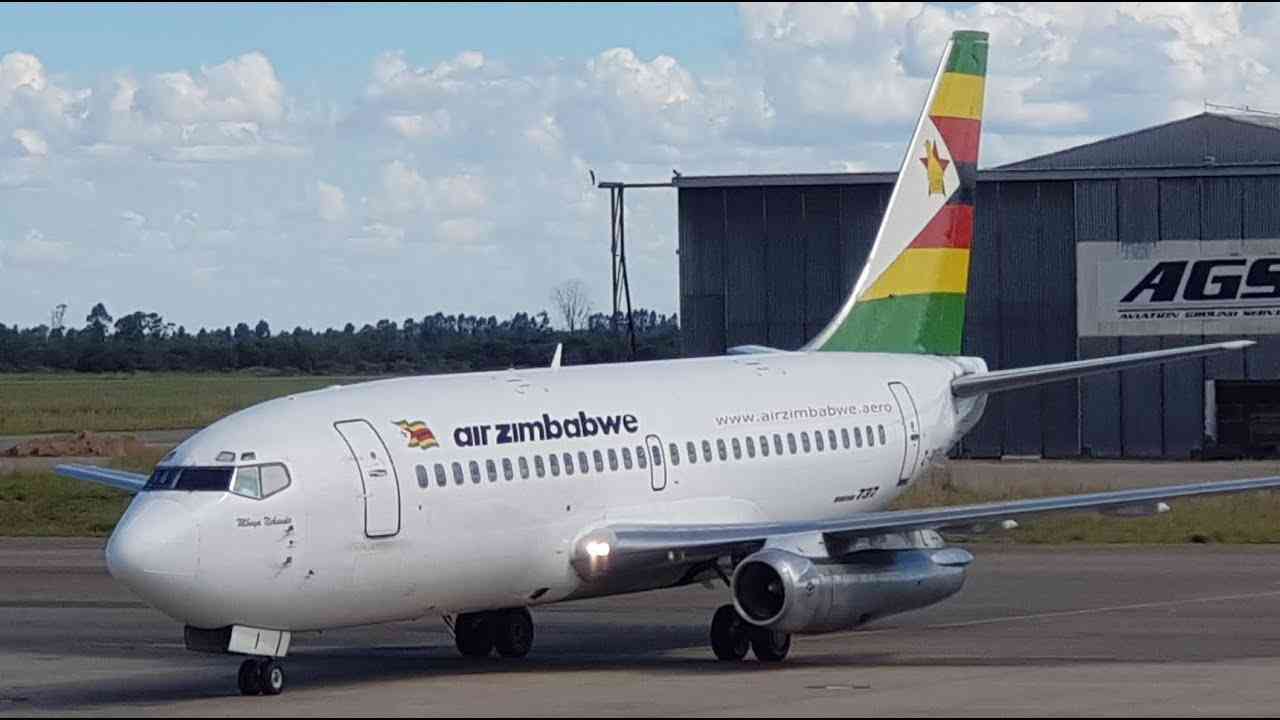
The world of aviation is soaring to new heights, and artificial intelligence (AI) is the wind beneath its wings. From the moment you book your ticket to the time you collect your luggage at your destination, AI is working behind the scenes to make your journey safer, smoother, and more enjoyable. Let us explore how this groundbreaking technology is revolutionising the friendly skies.
Flight operations
Gone are the days when pilots had to rely solely on their experience and weather reports to plan flights. AI-powered systems now analyse vast amounts of data, including weather patterns, air traffic, and aircraft performance, to suggest the most efficient routes. This not only saves fuel but also reduces flight times, making your journey quicker and more comfortable.
Retired captain, Alex Makanda, remarked, “With the advent of AI technology, flight planning must be a real pleasure. As a pilot, you are seeking as much information as possible for your flight.
“I flew older aircraft like the DC-3, which had basic instruments and no computers.
Later, I transitioned to the Boeing 737, which had more advanced systems, including the PDC (performance data computer), making flight management simpler and more straightforward.
“Eventually, I moved on to the Boeing 767, which had numerous computers located just behind the nose wheel. Modern aircraft are so computerised that you can programme the systems, connect them to the autopilot, and even enjoy automatic landings,” Makanda added.
AI in the cockpit
- Harvest hay to prevent veldfires: Ema
- Public relations: How artificial intelligence is changing the face of PR
- Queen Lozikeyi singer preaches peace
- Public relations: How artificial intelligence is changing the face of PR
Keep Reading
Philip Mutambirwa, a former Air Zimbabwe captain, stated that advanced tools have revolutionised flight planning, navigation, and weather forecasting.
“The met office offers accurate terminal aerodrome forecasts (TAFs) and low visibility procedure (LVP) forecasts, while meteoblue supplies high-resolution weather models... and APIs for flight planning integration. These resources help airlines reduce delays, optimise routes, and improve operational efficiency,” added Mutambirwa.
Richard Mhene, an aviation safety consultant and former pilot, noted that flight planning has evolved significantly. Pilots once relied on aeronautical maps, but advancements have shifted navigation from dead reckoning and celestial methods to GPS for precise tracking.
“Today, AI-equipped onboard computers enhance safety by alerting crews to potential ground collisions through systems which can autonomously take evasive action.
This evolution prompts the question: ‘Is AI making pilots redundant or simply easing their workload?’ The pilot's role has shifted from controlling the aircraft to managing complex operational systems,” Mhene added.
Predictive maintenance
Airlines are now using AI to predict when aircraft parts might fail before they actually do. By analysing data from sensors all over the plane, AI can spot potential issues early. This means fewer unexpected breakdowns, less time spent on the ground for repairs, and ultimately, fewer flight delays for passengers.
Autonomous aircraft
While fully autonomous passenger planes are still a way off, AI is already assisting pilots in many ways. From autopilot systems that can handle complex manoeuvres to AI co-pilots that can offer advice during emergencies, these technologies are making flying safer than ever before.
Air traffic management
Imagine the sky as a complex highway system, but in three dimensions. AI algorithms are helping air traffic controllers manage this intricate dance of aircraft, ensuring planes maintain safe distances while also finding the most efficient paths through a crowded airspace.
AI is getting better at predicting weather patterns that could affect flights. By analysing data from satellites, weather stations, and even from planes in flight, AI systems can provide more accurate forecasts.
This allows airlines to plan better and avoid turbulence, making flights smoother and more comfortable.
AI as your personal travel assistant
AI-powered chatbots and virtual assistants are available 24/7 to help with tasks like checking flight statuses and baggage allowances.
These digital helpers can answer questions, assist with bookings, and provide travel tips via a user-friendly chat interface on your smartphone or computer.
AI also tailors your travel experience by analysing your past trips, preferences, and social media activity (with consent) to suggest enjoyable destinations, suitable hotels, and activities to explore.
AI-driven facial recognition technology is streamlining check-in and security at many airports, allowing for quick identity verification through a facial scan instead of requiring your passport and boarding pass, thus minimising delays.
AI the ultimate co-pilot
AI aids pilots in decision-making by providing real-time information and suggestions during routine flights and emergencies. These systems process data faster than humans, enabling quick and effective choices.
In airport security, advanced algorithms analyse X-ray images of luggage more efficiently than human operators, flagging potential threats and reducing wait times at checkpoints, enhancing overall safety.
Through predictive safety analysis, AI reviews extensive flight data to identify potential safety issues before they arise, allowing airlines and regulators to anticipate risks and improve air travel safety.
Going green: Sustainable aviation
AI helps reduce fuel consumption and emissions by optimising flight operations, recommending fuel-efficient altitudes and speeds, and minimising onboard weight.
Additionally, AI accelerates the development of sustainable aviation technologies, such as designing more aerodynamic aircraft and simulating new engine types, paving the way for greener air travel.
Challenges and considerations
While the benefits of AI in aviation are clear, there are also challenges to consider.
The aviation industry is heavily regulated for good reason.
Introducing new AI technologies often requires extensive testing and approval processes to ensure they meet strict safety standards.
As AI systems take on more decision-making roles, questions arise about responsibility and ethics. For example, in an emergency situation, how should an AI system prioritise different courses of action?
While AI is incredibly powerful, human expertise and oversight remain crucial in aviation. Finding the right balance between AI assistance and human control is an ongoing challenge.
The future of aviation
As we look to the future, the potential for AI in aviation seems limitless. Here are a few exciting possibilities on the horizon:
Fully autonomous air taxis for short urban flights
AI-designed aircraft that are more efficient and environmentally friendly
Virtual reality training for pilots and crew, powered by AI
Seamless, connected journeys where AI coordinates every aspect of your trip, from your front door to your final destination.
Conclusion
Artificial intelligence is heralding a new era in aviation, one that promises increased safety, enhanced efficiency, and a more enjoyable experience for passengers. From the cockpit to the terminal, and from maintenance hangars to control towers, AI is working tirelessly behind the scenes to revolutionise every facet of air travel.
As these technologies advance, we can anticipate a future where flying is not merely about reaching your destination but becomes an integral part of the overall travel experience. With AI as a co-pilot, the sky is no longer the limit, but merely the beginning.
So, the next time you buckle your seatbelt and prepare for takeoff, bear in mind that you are not just boarding a plane; you are embarking on a journey into the future of AI-enhanced aviation.
Bon voyage!
Bangure is a filmmaker. He has extensive experience in both print and electronic media production and management. He is a past chairperson of the National Employment Council of the Printing, Packaging and Newspaper Industry. He has considerable exposure to IT networks and Cloud technologies and is an enthusiastic scholar of artificial intelligence. — naison.bangure@hub-edutech.com.










